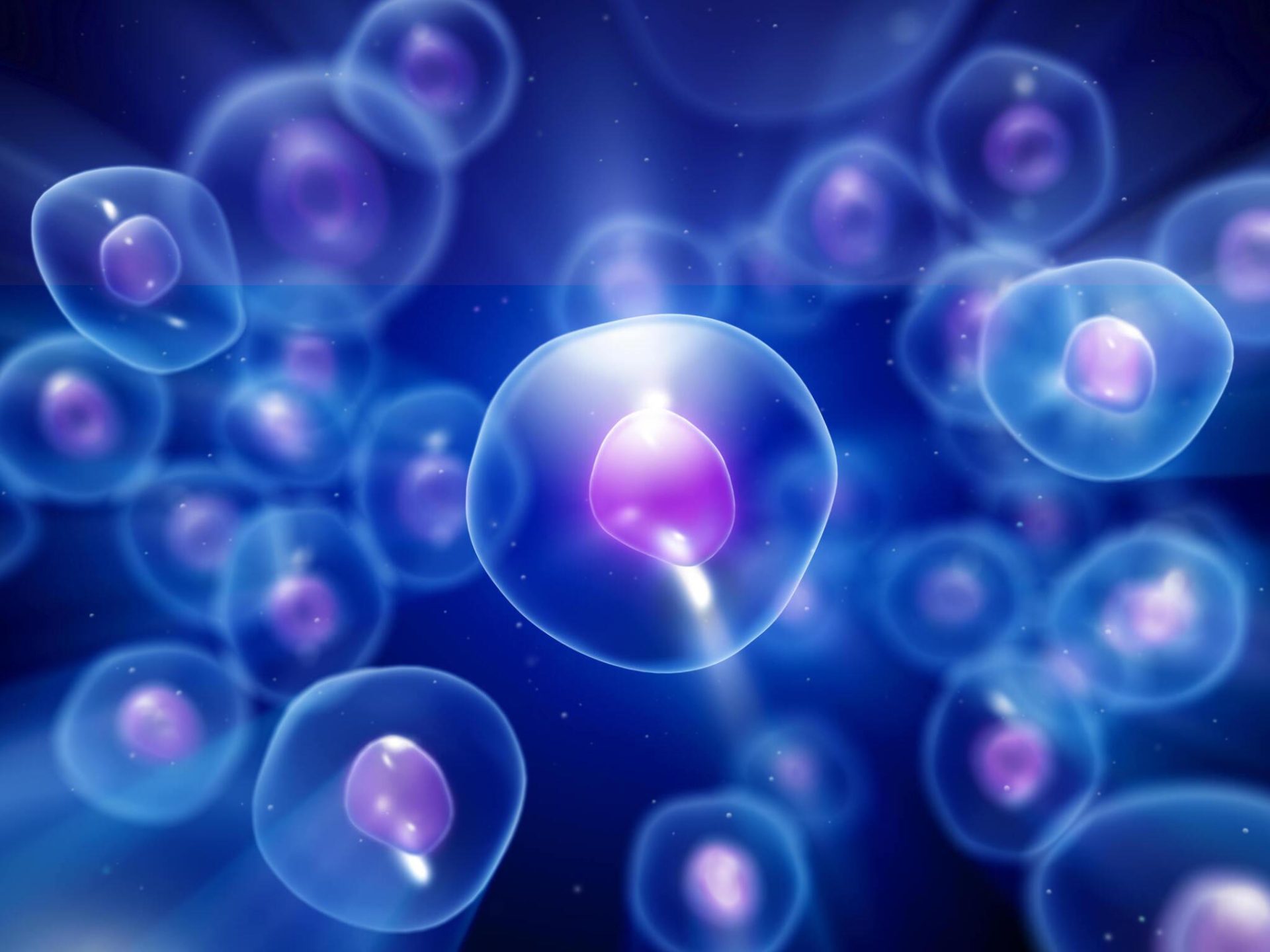The Power of Stem Cell Therapy: A Closer Look at Mesenchymal Stem Cells and Wharton’s Jelly
Stem cell therapy is revolutionizing the medical field, offering hope for conditions once deemed untreatable. This innovative approach harnesses the power of stem cells to repair, replace, and regenerate damaged tissues and organs. One of the most promising types of stem cells used in regenerative medicine is Mesenchymal Stem Cells (MSCs), particularly those derived from Wharton’s Jelly. This blog will explore the science behind MSCs, the unique properties of Wharton’s Jelly-derived MSCs, their immunomodulatory effects, and their potential in treating pulmonary fibrosis. Additionally, we will delve into clinical trials, the landscape of stem cell therapy in Mexico, and its costs, providing a comprehensive overview of this groundbreaking therapy.
What are Mesenchymal Stem Cells?
Mesenchymal Stem Cells (MSCs) are multipotent stem cells capable of differentiating into various cell types, including bone, cartilage, muscle, and fat cells. MSCs are prized for their ability to modulate immune responses, reduce inflammation, and promote tissue repair. These cells can be isolated from various tissues, including bone marrow, adipose tissue, and the umbilical cord.
Key Characteristics of MSCs
- Multipotency: Ability to differentiate into multiple cell types.
- Immunomodulation: Capable of modulating the immune system to reduce inflammation.
- Tissue Repair: Promote the repair and regeneration of damaged tissues.
- Homing Ability: Can migrate to sites of injury or inflammation.
What is Wharton’s Jelly?
Wharton’s Jelly is a gelatinous substance found within the umbilical cord. It surrounds the umbilical vein and arteries, providing protection and structural support. Wharton’s Jelly is rich in MSCs, which are easier to harvest and have higher proliferation rates compared to MSCs from other sources.
Unique Properties of Wharton’s Jelly
- Abundant MSCs: High concentration of MSCs, making it a potent source for regenerative therapies.
- Ethical Collection: Obtained non-invasively from donated umbilical cords post-birth.
- Young Cells: MSCs from Wharton’s Jelly are young and exhibit robust regenerative capabilities.
Wharton’s Jelly-Derived Mesenchymal Stem Cells (WJ-MSCs)
Wharton’s Jelly-derived MSCs (WJ-MSCs) are gaining attention for their exceptional regenerative and immunomodulatory properties. These cells can be used to treat a variety of conditions, including pulmonary fibrosis, a severe lung disease characterized by scarring of lung tissue.
Benefits of WJ-MSCs
- High Proliferation Rate: Rapidly divide and expand in culture.
- Potent Immunomodulation: Strong ability to modulate the immune response.
- Non-invasive Collection: Obtained ethically without harming the donor.
Read Also: Advanced Cost-Effective Stem Cell Treatment for Miami Patients
Immunomodulatory Effects of Wharton’s Jelly-Derived Mesenchymal Stem Cells
WJ-MSCs have remarkable immunomodulatory effects, which are crucial for treating autoimmune and inflammatory diseases. They can suppress pro-inflammatory cytokines and promote the production of anti-inflammatory cytokines, thus reducing inflammation and preventing tissue damage.
Mechanisms of Immunomodulation
- Cytokine Secretion: Release of anti-inflammatory cytokines.
- T-Cell Modulation: Suppress the activity of pro-inflammatory T-cells.
- Macrophage Polarization: Promote the transition of macrophages to an anti-inflammatory phenotype.
Mechanism of Action of WJ-MSCs on Pulmonary Fibrosis
Pulmonary fibrosis involves the thickening and scarring of lung tissue, leading to severe respiratory issues. WJ-MSCs can potentially reverse this damage through several mechanisms:
How WJ-MSCs Help in Pulmonary Fibrosis
- Anti-inflammatory Effects: Reduce lung inflammation, which is a primary cause of fibrosis.
- Anti-fibrotic Properties: Inhibit the processes that lead to scar tissue formation.
- Regenerative Capacity: Promote the repair and regeneration of damaged lung tissue.
Clinical Trials in the Field of Cell Therapy Using Mesenchymal Stem Cells in Pulmonary Fibrosis
Clinical trials are crucial in establishing the efficacy and safety of stem cell therapies. Several trials are underway to investigate the use of MSCs, including WJ-MSCs, in treating pulmonary fibrosis.
Key Findings from Clinical Trials
- Safety: WJ-MSCs have been shown to be safe with no serious adverse effects.
- Efficacy: Preliminary results indicate improvements in lung function and reduction in fibrosis markers.
Stem Cell Therapy: An Overview
Stem cell therapy involves the transplantation of stem cells to repair or replace damaged tissues and organs. It has shown promise in treating a variety of conditions, from neurological disorders to cardiovascular diseases.
Read Also: Unlocking the Potential of Stem Cells for Heart Failure and Stroke Recovery
Applications of Stem Cell Therapy
- Neurological Disorders: Treatment of stroke, spinal cord injuries, and neurodegenerative diseases.
- Cardiovascular Diseases: Repair of heart tissue post-myocardial infarction.
- Orthopedic Conditions: Treatment of joint and bone injuries.
Stem Cell Therapy in Mexico
Mexico has become a hub for stem cell therapy, attracting patients worldwide due to its advanced medical facilities and affordable treatment options. The country offers high-quality care with significantly lower costs compared to the United States and Europe.
Cost of Stem Cell Therapy in Mexico
- Affordability: Treatments in Mexico can be up to 70% cheaper than in the U.S.
- Quality of Care: Many clinics, such as Life Altering Stem Cell Therapy Institute, are American-owned and operated, ensuring high standards of care.
Key Clinics in Mexico
- Life Altering Stem Cell Therapy Institute: American-owned and operated, specializing in the use of Wharton’s Jelly-derived MSCs for various treatments.
Follow-up and Outcomes
Post-treatment follow-up is crucial to monitor the patient’s progress and ensure the success of stem cell therapy. Regular check-ups and assessments help track the efficacy of the treatment and manage any potential side effects.
Monitoring Progress
- Regular Assessments: Periodic evaluations to monitor improvement in symptoms.
- Patient Feedback: Collecting data on patient experiences and outcomes.
- Adjustments: Modifying treatment protocols based on individual responses.
Conclusion
Mesenchymal Stem Cells (MSCs), particularly those derived from Wharton’s Jelly, represent a promising frontier in regenerative medicine. Their unique properties make them ideal for treating a range of conditions, including pulmonary fibrosis. Clinical trials continue to validate their efficacy and safety, paving the way for broader applications. Stem cell therapy in Mexico offers an affordable and high-quality alternative for patients seeking advanced treatments. With ongoing research and clinical advancements, MSCs hold the potential to revolutionize medical care and improve the lives of countless individuals.

